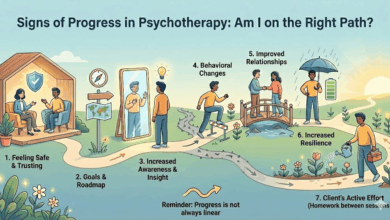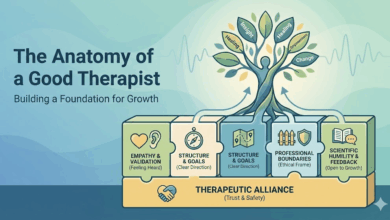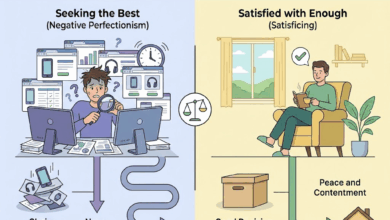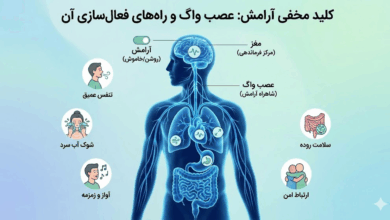How Seeing a Brighter Future Helps You Learn Better

Based on a 2025 study published in BMC Psychology
Can the way we imagine our future shape our confidence in learning today?
A recent study published in BMC Psychology suggests it can — and more profoundly than we might think. The research shows that having a positive outlook on the future is not just an optimistic trait; it’s a psychological mechanism that strengthens our motivation for growth, engagement in learning, and ultimately, our sense of academic self-efficacy.
Conducted among university students, the study titled “The Relationship Between Future Time Perspective and Academic Self-Efficacy: The Chain Mediating Roles of Personal Growth Initiative and Learning Engagement” used advanced statistical models to explore how these variables influence each other. It found that a bright view of the future indirectly boosts confidence by first enhancing one’s drive for personal growth, which in turn increases active engagement in learning.
Future Time Perspective: Beyond Optimism
In psychology, “future time perspective” refers to how individuals visualize and emotionally relate to their future — how far ahead they plan, and how capable they feel of shaping it. Those with a clear and positive outlook tend to align their present actions with long-term goals. This isn’t merely “hopefulness”; it’s a cognitive framework that organizes behavior toward a desired outcome.
Earlier studies had already linked future orientation to better planning and persistence. But this new research goes further: optimism alone isn’t enough. The turning point comes when that vision of the future transforms into a will to grow and an emotional engagement with learning itself.
From Future Vision to Personal Growth
One of the study’s key insights is the central role of personal growth initiative — the inner drive to learn, change, and evolve. When people perceive their future as bright and meaningful, they naturally develop the urge to improve themselves. This internal motivation turns learning into an act of self-creation rather than obligation.
That shift changes everything: students stop seeing education as a duty and start experiencing it as a path toward becoming the person they want to be.
Engagement in Learning: Where Mind Meets Action
The second mediator in this psychological chain is learning engagement. Engagement here doesn’t mean mere attendance or studying for grades — it’s the emotional and cognitive involvement in the process of learning.
When learners feel inspired by their future and committed to their personal growth, they participate more actively, focus more deeply, and sustain motivation longer.
This active participation produces small but powerful experiences of success, which reinforce belief in one’s own ability — the essence of self-efficacy.
Academic Self-Efficacy: Believing You Can Learn
Academic self-efficacy refers to one’s belief in the ability to succeed in educational tasks. It’s one of the strongest predictors of performance, resilience, and long-term motivation.
The study shows that while a future-oriented mindset directly affects self-belief, its full impact comes through the chain of personal growth → engagement → confidence.
In other words, a vision of the future isn’t real until it changes how you act in the present.
Practical Takeaways for Educators and Psychologists
These findings have powerful implications. Building self-belief in students isn’t only about external motivation or short-term goals; it’s about helping them imagine a future that feels achievable and personally meaningful.
Activities like writing a “letter to my future self,” visualizing long-term goals, or discussing dreams and obstacles can make that future tangible. Encouraging creative projects or skill-building beyond grades fosters a sense of personal growth — and that growth fuels engagement and belief.
In higher education, programs could focus less on evaluation and more on development — treating failure as part of the learning process rather than a verdict.
A Sociological Reflection
From a sociological lens, one’s ability to imagine a bright future isn’t formed in isolation. It’s shaped by social structures, economic conditions, and cultural expectations. In societies marked by uncertainty or inequality, a positive future outlook becomes harder to sustain.
Here, education can play a compensatory role — helping individuals rediscover agency in shaping their own futures. Conversely, in more opportunity-rich environments, a strong future vision can reinforce cycles of growth, participation, and confidence.
Self-efficacy, then, is not only psychological but also deeply social.
Limitations and Future Directions
Like all studies, this one has limits. The data were cross-sectional — collected at one point in time — so causality cannot be firmly established. The sample was also context-specific, which means results might differ across cultures or age groups.
Future research could use longitudinal designs or intervention studies to test whether cultivating a future-oriented mindset can actively raise students’ self-efficacy.
In Closing
The message of this study is simple yet profound:
Seeing a brighter future is not just about hope — it’s a mindset that activates a powerful chain of motivation, engagement, and self-belief. The clearer we see our tomorrow, the more intentionally we live our today.
For teachers and psychologists, nurturing this vision may be one of the most transformative acts of growth. For students, it’s a reminder that the future isn’t waiting — it’s being built, step by step, in every moment of learning.
Source: BMC Psychology




